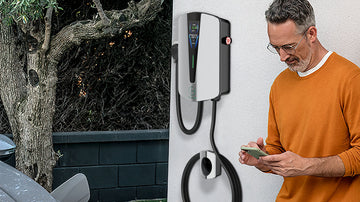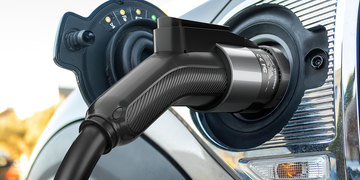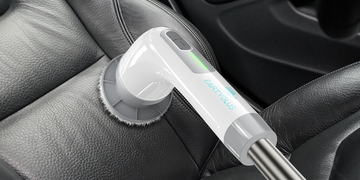Can My House Handle an EV Charger? Yes, of course. Any home electrical system can handle a slow, level 1 charger. If you want or need a faster charger, you should have an electrician appraise your system's capacity. In my case, my house turned out to have a 200 amp panel already installed, so no increase in capacity was necessary to install a faster, level 2 charger.
You need to find out from your local distribution system provider
(a) the cable feeding your house is capable of carrying the load needed to charge an EV in anything like a sensible time.
(b) ask the same question about whether the cable feeding the street you live on is also capable of providing the extra demand that you and you neighbours will put on it.
(c) then ask whether the distribution transformer feeding your area is up to the job of supplying all these wonderful planet changing “fads”.
(d) finally ask them how much it will cost you for them to upgrade all of these systems to your needs.
While the benefits of owning an EV are clear – reduced emissions, lower fuel costs, and contributing to a sustainable future – there are crucial considerations to ensure that your house can handle the installation of an EV charger. This article will guide you through the essential factors to evaluate before making the decision to install an EV charger at home.
Electrical Capacity:
The most critical factor to consider is your home's electrical capacity. An electric vehicle charger requires a dedicated circuit with a sufficient amperage rating to handle the charging load. Most residential chargers require a 240-volt circuit, commonly known as Level 2 charging. The amperage will vary depending on the charger's specifications, but it's not uncommon for them to require a 40-amp or higher circuit.
Before proceeding with the installation, consult with a licensed electrician to assess your home's electrical panel and determine if it can accommodate the additional load. Upgrading the electrical panel may be necessary to support the increased demand from the EV charger.

Wiring and Infrastructure:
In addition to the electrical panel, the wiring and infrastructure within your home must be capable of handling the demands of an EV charger. The wiring should be of the appropriate gauge and quality to prevent overheating and ensure safe and efficient charging. Older homes may require rewiring to meet the necessary standards for EV charging.
Consider the location of the charging station as well. It's often more practical to install the charger in a garage or near the electrical panel to minimize the length of wiring required.
Permitting and Local Regulations:
Before installing an EV charger, check with your local authorities to understand the permitting requirements and regulations in your area. Some jurisdictions have specific guidelines for electrical installations, especially those involving high-powered equipment like EV chargers. Obtaining the necessary permits ensures that the installation is compliant with local codes and regulations.
Charger Compatibility:
Not all EV chargers are created equal. Different EV models may have varying charging requirements, and not every charger is compatible with every vehicle. Before purchasing a charger, ensure that it is compatible with your EV's specifications. Additionally, consider future-proofing your installation by choosing a charger with adjustable power settings to accommodate potential changes in your EV fleet.
Can My House Handle an EV Charger? Installing an EV charger at home is a significant decision that requires careful consideration of your house's electrical infrastructure, local regulations, and your EV's charging requirements. Consulting with a licensed electrician and researching local regulations will help ensure a safe and compliant installation. With the right planning, you can enjoy the convenience of charging your electric vehicle at home while contributing to a greener and more sustainable future.





